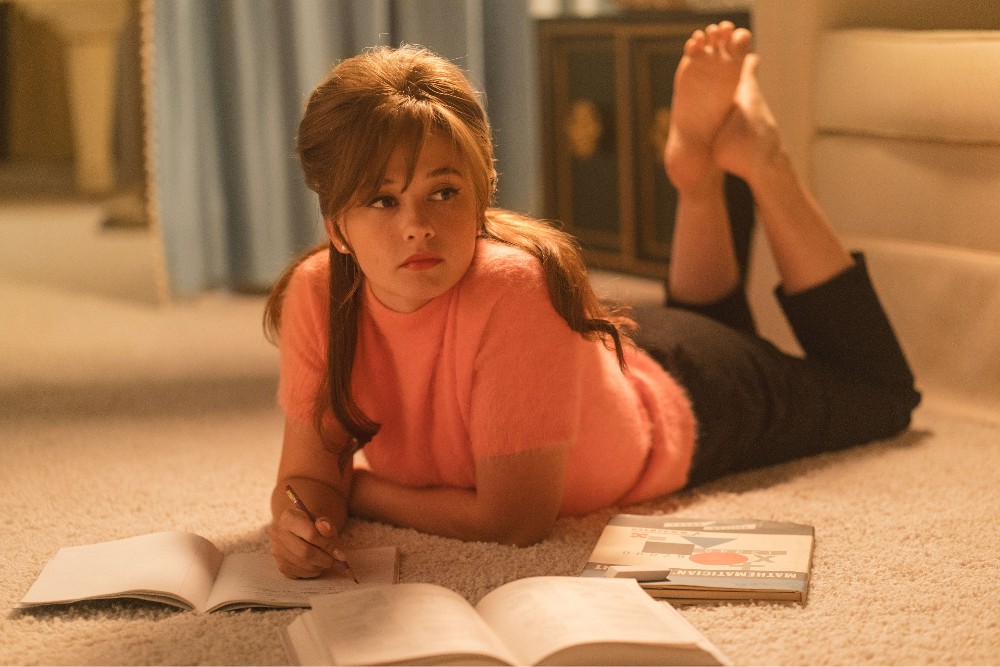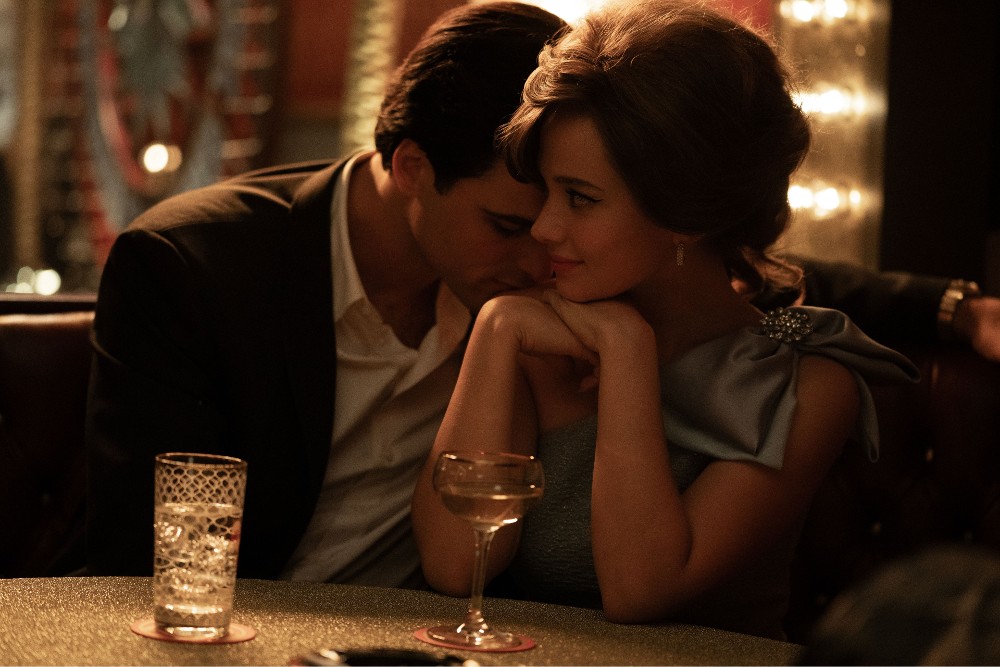
It’s hard to fathom another movie revolving around rock legend Elvis Presley so soon after Baz Lurhmann’s excellent Elvis from last year. Many obvious things set Sofia Coppola’s Priscilla apart, the most evident one being that it is very much a Sofia Coppola film, but also being based on Priscilla Presley’s own 1986 memoir, Elvis and Me, it guarantees to give a different perspective on “The King.”
Portrayed by Cailee Spaeny (The First Lady) across the course of 13 years, from meeting Elvis in Germany as a teenager to their eventual separation in 1972, Priscilla gives much needed insight into her relationship with Elvis, played by Jacob Elordi (Euphoria, The Kissing Booth). Elvis is not portrayed in a favorable light, any youthful charm he displays when they first meet quickly vanishing the deeper Priscilla gets pulled into his world.
When Priscilla Beaulieu first meets Elvis, he exudes that aforementioned charm, but she’s only a teenager, and her parents rightfully are concerned about his intentions with their daughter. This leads to a whirlwind romance where she eventually joins him at Graceland, constantly having to deal with his notoriously boisterous male entourage, known as the “Memphis Mafia.” That’s where things start to go south for Priscilla; she feels out of place in this world of debauchery, and Elvis’ demeanor grows toxic.

Priscilla makes it apparent that Luhrmann’s Elvis only told part of the story, making Presley seem more like the tragic hero of his own story. Coppola was quite lucky to have the real Priscilla alive and involved to make sure her story is told as factually as possible. Of the two leads, Spaeny is far more impressive as Priscilla, going through quite a metamorphosis from her younger self to a version who has changed her entire look at the urging of her husband. That’s part of the reason why hair and makeup and costumes play such a large part in selling Priscilla, as they often do in any biopic. Elordi gives a far more subdued but also quite a cruel version of Elvis compared to Elvis‘ Austin Butler. This is not an “Elvis Presley biopic,” after all.
There’s little question that Coppola has established herself as a storyteller and filmmaker of great merit over the past 25 years, exemplified by the level of talent among her heads of department, including many she has worked with before. Priscilla reunites Coppola with DP Philippe Le Sourd and Costume Designer Stacy Battat, the latter’s work being far more front-and-center. Coppola’s collaboration with Editor Sarah Flack goes back even further, but Priscilla is not the type of movie that showcases its editing.
Seeing Oscar nominee Tamara Deverell’s name credited as Production Designer was a pleasant surprise, since her work with Guillermo del Toro has been top-notch. She proves to be just as able working outside the genre realm, her recreation of Elvis’ Graceland mansion, both interior and exterior, creating quite a contrast to the work by Catherine Martin on Elvis, which made that world seem far more glamorous. That grounding of the locations created by Deverell does absolute wonders for placing the viewer into their lives.

Elvis devotees might be somewhat disappointed by the deliberate lack of Elvis performances and even songs, since the focus is so much more on the relationship that so many saw filtered through the media. Instead, Priscilla’s music is credited to French music group Phoenix – Coppola has been married to lead singer Thomas Mars for over a decade – and omnipresent Music Supervisor Randall Poster. There is no delineation between their roles, as Poster’s time-appropriate song selections perfectly accent Phoenix’s score with the music greatly elevating every moment. Also absent is the over-arching presence of Col. Tom Parker, only getting a single mention, because again, Priscilla is not about that, and those going into it expecting a rehash of Elvis history might be thrown off by Coppola’s differing approach.
At times, surprisingly straight-forward biopic not only for Coppola but also for A24. It hits a few lulls as a result. Since the story is fairly well-known, there aren’t a ton of major revelations, other than the amount of abuse Priscilla ended up withstanding in a relationship that deteriorates from the romantic to the downright toxic. In many ways, this could have been a relationship drama about any woman in a toxic relationship involving fame, drugs and the abuse of power. “Priscilla” is narratively familiar — but it’s also another authentic, virtuoso filmmaking experience from Sofia Coppola.
Rating: B
Priscilla had its North American premiere at the 61st New York Film Festival as that festival’s Centrepiece, and it will be released nationwide via A24 on November 3 after a platform release in New York and L.A. on Oct. 27.





